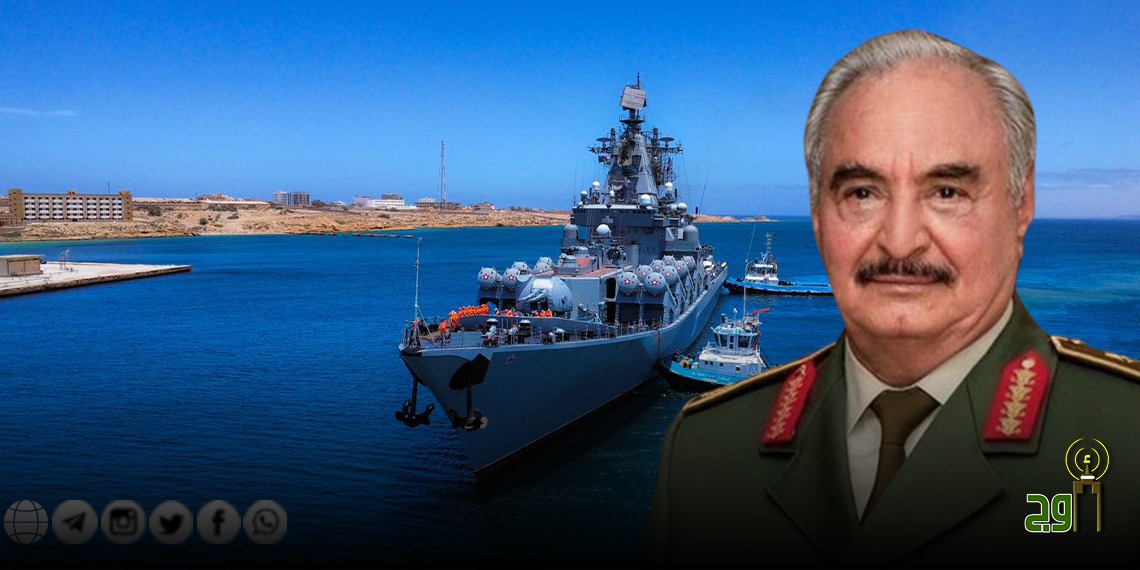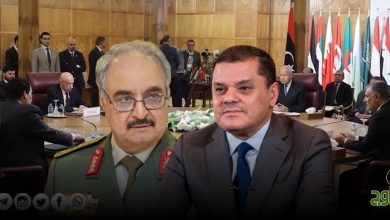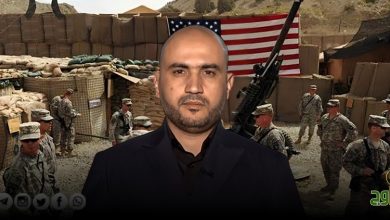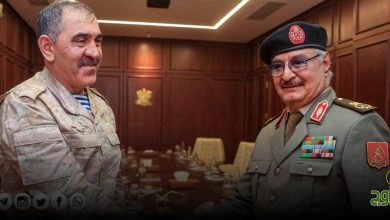American Institute: Russia is exploiting Libya to manage its malicious activities in Africa and has benefited from the country’s division and militia competition

The American Middle East Institute confirmed that Russia is exploiting Libya to manage its malicious activities on the African continent, indicating that NATO must pay attention to strengthening its weak wings that emanate from Libya.
Jonathan Weiner, the former American envoy to Libya, explained in his article at the American Middle East Institute that NATO must adopt, at its historic meeting next month in Washington in conjunction with the alliance’s celebration of the 75th anniversary of its founding, a strategic approach to support NATO’s weak wings, the most prominent of which comes from Libya.
The article pointed out that the Russian government’s change of Wagner’s mercenaries to the African Corps was not a coincidence, as it primarily aims to strike NATO’s southern wing in the Maghreb and Sahel region and its neighboring regions on the African continent.
It pointed out that the question currently being asked is: Can NATO stop Moscow’s malicious influence and begin to confront the trend of Russian-sponsored dictatorships, coup leaders, and human rights violators in Africa?
It stated that Russian intervention in the African continent over the past decade was systematic, and began in Libya because Moscow sees it as central to its future success on the continent.
It pointed out that the beginning of the implementation of the Russian project was with Moscow agreeing to print and deliver more than 10 billion Libyan dinars to the American Khalifa Haftar, who exploited it, in addition to military support from the Wagner Group, to recruit forces, pay his salaries, and slowly control the eastern coast, before moving south.
Weiner added in his article: “During the past year, the Russian Deputy Defense Minister visited Benghazi on five trips to see Haftar, and two Russian destroyers also visited the Tobruk naval base, which Haftar controls.”
It went on to say, “This appears to be a continuation of the delivery of weapons to Haftar’s forces for use in future military action in Libya or to be exported south to military forces in neighboring countries.”
The article stated that Russian President Vladimir Putin began to pay attention to Africa’s geopolitical importance long before he began his current invasion of Ukraine, seizing the opportunity provided by the West’s continued neglect of the region.
It argued that Putin used a range of diplomatic and economic tools as well as military tools, starting with Wagner’s various “special military” service offerings, to initiate partnerships with the new class of African warlords who controlled much of North Africa and the Sahel.
The article stated that the crisis was that NATO’s belated activities and response were unlikely to achieve any progress or shift in the penetration of Russian influence in any near term.
Returning to the Libyan crisis, Weiner pointed out that the lack of progress in the Libyan political process contributes significantly to regional instability, and all NATO recommendations were limited to reunifying the country, forming a single national military force, and restoring sovereign control over the Libyan borders, without clarifying how to do this.
It continued, saying, “The lack of any concrete action by NATO regarding Libya is puzzling, especially since Russia’s foothold there has been the basis of the Kremlin’s success throughout Africa.”
It also said that all of this comes at a time when Moscow is using Libyan lands as a foothold for developing a transcontinental logistics network between the north and the south that continues to grow and intensify.
It also pointed out that the crisis is that many African countries have a negative impression of NATO in the wake of the criminal raids it launched on Libya in 2011, as well as its withdrawal from Afghanistan in 2021.
Weiner continued, saying, “NATO needs to confront Russia’s influence and negative activities in Africa, which is embodied in the launch of the African Corps, enabling the alliance to carry out military activities across the continent of interest to the army or political leaders in the targeted countries.”
It pointed out that neither NATO nor the West can confront Africa’s shift toward warlordism, or the Russian role in exacerbating and exploiting this trend through the neo-colonial African Corps, without addressing the problem posed by the Libyan division and competing militia leaders.
It stressed that this will require Western governments to adopt a firm, urgent and focused strategy supported by clear, concrete measures aimed at unifying Libya and enabling the North African country to expel its foreign military forces, starting with the Russians, but including the Turks, the Americans and any other foreign occupying force.
Weiner concluded by saying, “A unified Libya that does not embrace the Russian military presence can do a lot to help confront the trend of military junta rule in the Sahel region and the insecurity and instability that radiates from it.”




